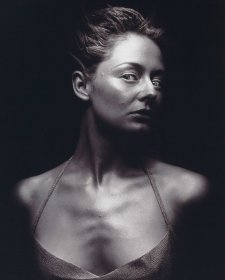Adrian Rawlins (1939-2001), poet, performer and promoter, grew up in a Jewish household in Caulfield and St Kilda. Taught for a while by Danila Vassilieff, he studied theatre with Frank Thring. In the 1950s he began to write about music and promoted the band the Red Onions, who later became the Loved Ones. From 1960 to 1961 he presented a weekly poetry and jazz session on radio. Living in the back of a derelict house (that was photographed by Sue Ford), in 1965 and 1966 he ran the Fat Black Pussycat as a contemporary and experimental jazz venue. During this period, he appeared in the pop culture documentary Approximately Panther, and attached himself to Bob Dylan on his 1966 Australian tour; in 1994, his collection of essays Bob Dylan through the looking glass was published. In the late 1960s Rawlins moved to Sydney, where he fell under the spell of the mystic poet and musician Nevil Drury and became ‘the original hippy’, converting to Meher Baba. In 1968 he was involved with one of the country’s first free counter-cultural zines, Chaos, its issues on psychedelia, progressive sculpture, contemporary graphic art and electronic visuals doing the rounds of the streets and coffee shops of Kings Cross. In 1968-69 he was closely involved with expatriate New Zealand band The La De Das, encouraging them to record an ambitious concept album built around the Oscar Wilde story The Happy Prince, himself reciting the voiceovers linking the songs. In early 1970 he was the MC at Australia's first rock festival, the ‘Pilgrimage For Pop’ at Ourimbah on the NSW central coast. The following summer he hosted the Wallacia and Myponga festivals, declaring at the latter ‘The age of historic high cultures is at an end. [It is] an age when rhythm brings a new and real spiritual uplift to the young. The kids are responding to vibrations within themselves, rather than to conventional standards imposed from without.’ In 1972 he was co-compere at Sunbury. His Festivals in Australia: An intimate history was published in 1986. He was involved with the Canberra-based publication Blast with Bill Tully and Ann Nugent in the late 1980s and early 1990s; during this period he read his poetry in the film John Olsen: journey through ‘you beaut’ country. In 1999 his These days, those days: A Saga of Today was issued in an edition of five copies, each signed by the author. His extensive archive is in the library at ADFA, which also holds recorded interviews. A startling life-sized sculpture of Rawlins by Peter Corlett called The laughing poet sits atop a column in Brunswick Street, Fitzroy, where he used to sell audiotapes of himself reciting Shakespeare’s sonnets to passers-by.
Gift of Elizabeth Campbell-MacKenzie on behalf of the family of David Campbell 2012
© Estate of David Campbell
Elizabeth Campbell (3 portraits)



On one level The Companion talks about the most famous and frontline Australians, but on another it tells us about ourselves.



Dr Sarah Engledow discusses the recent gift of works by David Campbell.



Eye to Eye is a summer Portrait Gallery Collection remix arranged by degree of eye contact – from turned away with eyes closed all the way through to right-back-at-you – as we explore artists’ and subjects’ choices around the direction of the gaze.